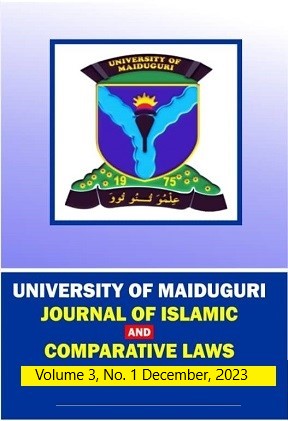AN APPLICATION OF THE ISLAMIC FINANCE PRINCIPLE OF RIBA TO THE POS BUSINESS IN NIGERIA
This paper explored the application of the Islamic finance
principle of Riba to the Point of Sale (POS) business in
Nigeria. Islamic finance operates on the principles of
Islamic law, which prohibits the charging of interest and
emphasizes fairness, ethical conduct, and the sharing of
risks. The paper adopted a doctrinal method of research
The paper delved into the concept of Riba, both in its literal
and technical meanings, emphasizing its prohibition in
Islamic law as outlined in the Quran, Sunnah and the
consensus of Muslim jurists. Furthermore, the paper
examined the emergence and growth of the POS business
in Nigeria, a modern financial service introduced by the
Central Bank of Nigeria to facilitate cashless transactions.
This business allows individuals to withdraw money, pay
bills, and engage in various financial transactions through
POS terminals. The legality of this service in Islamic law
has been a subject of debate among scholars, leading to
divergent opinions. The paper categorized scholars into
four groups based on their views regarding the
permissibility of POS transactions. Some consider it
prohibited (Haram) due to the commission charged by POS
merchants, while others deem it permissible (Halal).
Another group suggests that POS can only be allowed in
situations of desperate need (Darurat). The last group
adopts a middle-ground approach, distinguishing between
different types of POS transactions and classifying them
accordingly. In conclusion, the paper underscored the
importance of a nuanced understanding of POS
transactions in Islamic finance, highlighting that some
forms may be Halal while others should be approached
with caution. It encouraged further discussions and
research on this topic, acknowledging that modern
financial services like POS require continuous assessment
in the context of Islamic commercial jurisprudence.
There are no reviews for this Journal.
About the Journal
About
Editorial Team
Curent issues
Archive
DOWNLOADABLES
Guide for contributors
Authors Response Form
Manuscript review Form
Make a Submission

